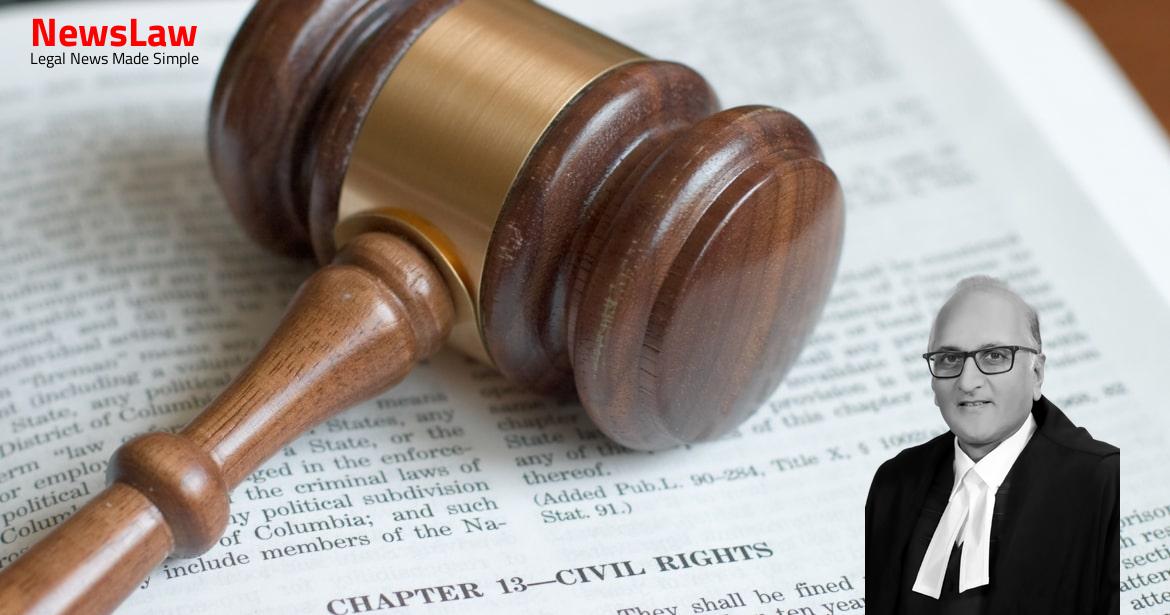This blog delves into the detailed legal analysis conducted by the court in a recent case regarding the inclusion of non-signatories in arbitration agreements. The court’s examination of doctrines such as the ‘group of companies’ doctrine, implied consent, and the distinction between signatories and non-signatories sheds light on the complexities of binding non-signatories to arbitration agreements. Stay tuned to understand the nuances of arbitration law as interpreted by the court.
Facts
- The Applicant and Respondent No. 1 entered into an SAP Software End User License Agreement and SAP Enterprise Support Schedule on 14.12.2010.
- An agreement was entered into on 16.11.2015 for the customization of the software.
- The Applicant invoked arbitration on 07.11.2019 and constituted an Arbitral Tribunal.
- Respondent No. 1 initiated proceedings for the appointment of an Arbitral Tribunal under Clause 15.7 of the GTC on 30.10.2015.
- The arbitration process will be governed by the Arbitration & Conciliation Act, 1996.
- The Applicant demanded a refund of Rs. 45 crores which was rejected by Respondent No. 2.
- The matter could not be settled amicably, leading to Respondent No. 1 issuing a notice for arbitration in 2017.
- The arbitration proceedings were adjourned sine die in view of the Corporate Insolvency Resolution Process.
- The Applicant filed an application under Section 16 of the Arbitration Act contending that the agreements form a part of a composite transaction.
Also Read: Balancing Power and Transparency: Electoral Bonds Struck Down, Disclosure Mandated
Arguments
- Applicant invoking Section 11 seeking appointment of Arbitrator in International Commercial Arbitration
- Agreements and correspondence show mutual intention of parties for implementation
- Arbitration can be invoked against non-signatories if mutual intention demonstrated
- Applicant accused of suppressing material facts regarding previous attempts to resist Arbitral Tribunal
- Challenging Clause 15.7 of GTC previously
- Court intervention under Section 11 should be minimal, only required to examine existence of arbitration agreement
- No commonality of claims between present and earlier arbitration proceedings
- Respondent No 2 is a separate foreign entity not bound by agreements with Respondent No 1.
- There is no indication of an undertaking by Respondent No 2 in the emails provided.
- Respondent No 2 has chosen to raise similar claims separately.
- Applicant approached Respondent No 2 for assistance after agreements were executed.
- Respondent No 2 was not part of the contract negotiation process.
Also Read: Recall of Resolution Plan Approval: Legal Analysis
Analysis
- A judicial authority must refer parties to arbitration when an action is brought before it in a matter covered by an arbitration agreement.
- The referral to arbitration must be made if a party requests it before submitting their first statement on the substance of the dispute.
- This referral to arbitration overrides any judgment, decree, or order of the Supreme Court or any court.
- Judicial reference at the stage of Sections 8 and 11 of the Arbitration Act needs reevaluation in light of the scope of unamended Section 2(1)(h) of the Arbitration Act.
- The group of companies doctrine should be applied cautiously, and mere affiliation of non-signatories within a group of companies is not sufficient to extend the arbitration agreement to them.
- The intention of the parties plays a crucial role in determining whether a non-signatory can be treated as a party to the arbitration agreement.
- The doctrine of ‘claiming through or under’ as per Section 45 of the Arbitration Act needs to be carefully analyzed to determine the legal relationship between signatories and non-signatories.
- The ‘group of companies’ doctrine, while accepted in some jurisdictions, may present challenges in maintaining distinct legal identities of companies and preserving party autonomy.
- Courts may need to assess the issues requiring adjudication regarding the validity of the arbitration agreement in cases involving non-signatories.
- The 2015 Amendment to Section 8(1) of the Arbitration Act expanded the scope of ‘party’ to include persons claiming ‘through or under’, limiting judicial interference to a prima facie examination of the arbitration agreement’s existence.
- An essential element of a cause of action or defense must be vested or exercisable by the original party before a person claiming through or under that party can rely on it.
- Mere legal or commercial connections are insufficient to establish reliance on a cause of action or defense.
- Under Section 8 of the Arbitration Act, causes of action cannot be split in an arbitration, and only parties to the arbitration agreement can be included.
- The ‘group of companies’ doctrine is used to bind third parties to an arbitration agreement, based on efficiency and policy considerations.
- The term ‘party’ includes not only signatories but also persons claiming through or under the signatory, such as successors-of-interest or alter-egos.
- Legal bases for binding non-signatories to an arbitration agreement are usually of contractual origin.
- The Court in various cases has analyzed the concept of ‘claiming through or under’ a party in the context of arbitration agreements.
- The Court also discussed the application of the ‘group of companies’ doctrine in binding non-signatory affiliates of a parent company to arbitration.
- The distinction between signatories and non-signatories in arbitration agreements is fundamental and cannot be bridged.
- The Court has analyzed various doctrines, including implied consent and disregard of corporate personality, in relation to binding non-signatories to arbitration.
- The court refers the matter to a larger bench to discuss the intricacies of the Group of Companies doctrine.
- The court poses questions regarding the interpretation of the phrase ‘claiming through or under’ in Sections 8 and 11 in relation to the ‘Group of Companies’ doctrine.
Decision
- Arbitration award is binding on both parties
- In case disputes cannot be settled amicably, they will be referred to a bench of three arbitrators
- Each party will nominate one arbitrator
- The two arbitrators will appoint a third arbitrator
Case Title: COX AND KINGS LTD. Vs. SAP INDIA PVT. LTD. (2022 INSC 523)
Case Number: ARBIT.CASE(C) No.-000038 / 2020



